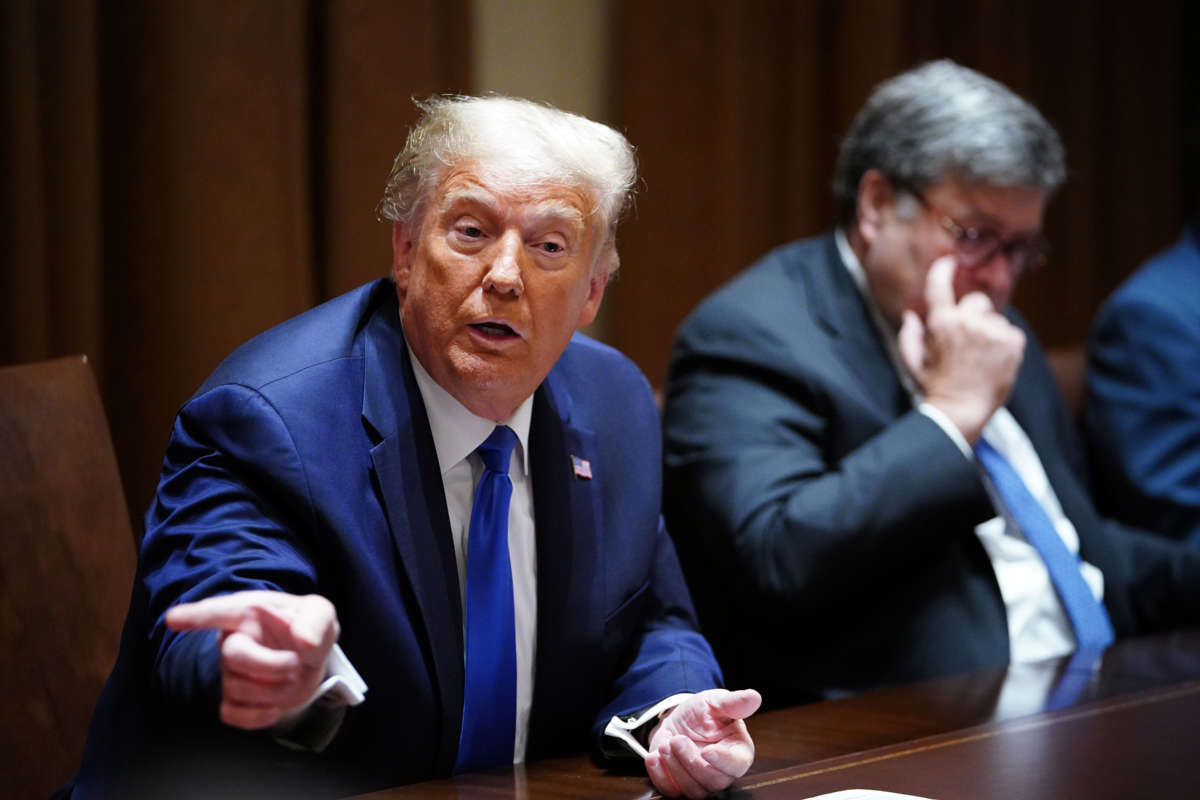Support justice-driven, accurate and transparent news — make a quick donation to Truthout today!
During his tenure as president, Donald Trump reportedly sought advice from his aides on how to use his executive powers to stop late-night comedy shows and hosts, including “Saturday Night Live” (SNL), Jimmy Kimmel and others, from making jokes at his expense, according to reporting from The Daily Beast.
Trump’s displeasure and frustrations over entertainers making fun of him are no secret, as he has frequently sounded off against them through social media (until he was banned from several platforms earlier this year), both before and during his presidency. In March 2019, for example, Trump, reacting to an SNL rerun that was airing at the time, knocked the actors on the show in a series of tweets as being “not funny” and having “no talent” after they had performed skits about him and his administration in that episode.
Trump also complained in those tweets that it was unfair that the “other side” wasn’t afforded the ability to respond to jokes about him. “Like an advertisement without consequences,” Trump said.
“Should Federal Election Commission and/or FCC [the Federal Communications Commission] look into this?” he added.
Trump was criticized for suggesting that a federal agency should be involved in trying to limit satire on TV programs, which would amount to interfering in a form of protected speech in the United States. But it now appears that Trump actually sought to pursue the matter further, as The Daily Beast reported on Tuesday, by seeking to find out if he could use executive agencies and departments to stop or threaten comedy programs that poked fun at him and his administration.
According to two people familiar with the matter, Trump asked his advisers in early 2019 what the courts, the FCC, and even the Department of Justice (DOJ) could do about comedians making jokes about him on television.
Trump asked specifically about the “equal time” rule, a provision in federal election law that requires over-the-air television stations to give opposing political candidates or issue advocacy organizations the same amount of screen time. But that rule doesn’t apply to comedians who joke about political figures.
Trump was repeatedly told, per those two sources, that satire is protected speech, and that he couldn’t stop networks from broadcasting comedians making jokes about him. According to one of those sources — a lawyer working within the White House at that time — Trump asked them if “something else can be done about it.” That person said they’d “look into it,” but never followed up on the inquiry from Trump.
This is the second instance in as many weeks where it’s been revealed that Trump sought to overstep his authority as president in alarming ways.
Last week, it was reported that the House Oversight Committee had obtained documents detailing how the Trump White House also sought to pressure the DOJ to overturn the results of the 2020 presidential election, including pushing the department to look into a baseless conspiracy theory alleging that facilities in Italy used CIA satellites to change the outcomes of races in several states. The Trump administration had also drafted a legal brief it had intended to submit to the Supreme Court, demanding that justices “declare that the Electoral College votes cast” in six swing states that the former president had lost “cannot be counted” in the final tally.
Media that fights fascism
Truthout is funded almost entirely by readers — that’s why we can speak truth to power and cut against the mainstream narrative. But independent journalists at Truthout face mounting political repression under Trump.
We rely on your support to survive McCarthyist censorship. Please make a tax-deductible one-time or monthly donation.
